The “Focus” heading is at the heart of the Magazine as it deals with substantial issues in-depth. It is the part around which the monthly magazine evolves. The main topics are elaborated through numerical analyses and data, which makes of the “Focus” rubric an excellent documentary base for insurance professionals. Hereunder, the selection made by our readers and by our editorial team.
The 10 issues are shown in decreasing order.
n°1 | The insurance market in the Maghreb |
|---|
| N° 95 et 96, November and December 2012 Atlas Magazine proposes to its readers a special Maghreb coverage due to be published in two parts. The November issue is dedicated to the general context of insurance in the Maghreb and to the historical background of the Algerian, Moroccan and Tunisian markets. The December 2012 issue depicts the current structure of each country and the performances achieved. |
n°2 | Insurance in the Gulf countries |
|---|
| N° 97 and 98, January and February 2013 Atlas Magazine shall continue its presentation of the emerging insurance markets. In the 97 and 98 issues, the magazine offers its readers a special document dedicated to insurance in the Gulf countries: United Arab Emirates, Saudi Arabia, Oman, Kuwait, Qatar and Bahrain. |
n°3 | The international financial crisis |
|---|
| N° 55, November 2008 t was in the summer of 2007 that the subprime crisis broke out. For several years already, the American banks, in search for new sources of profit, have supplied loans for low-income households. That strategy was to shatter the balance of the international financial system. Since the start of 2008, some signs have shown that the quake has spread out outside American boundaries to spill over to the financial sphere and seriously threaten the real economy. |
n°4 | Reinsurance of natural catastrophes |
|---|
| N° 55, November 2008 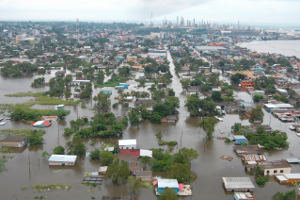 Natural catastrophes may have major economic and social consequences as they affect human life, cause serious damage to property and disrupt the economic cycle of regions and even entire countries. In order to alleviate their devastating effects, Man has tried to understand mechanisms relying on science and research. Since the 1980s, technical breakthroughs have enabled reinsurance to provide a new approach to address catastrophe risks. Natural catastrophes may have major economic and social consequences as they affect human life, cause serious damage to property and disrupt the economic cycle of regions and even entire countries. In order to alleviate their devastating effects, Man has tried to understand mechanisms relying on science and research. Since the 1980s, technical breakthroughs have enabled reinsurance to provide a new approach to address catastrophe risks.
|
n°5 | Insurance of offshore oil platforms |
|---|
| N° 79, March 2011 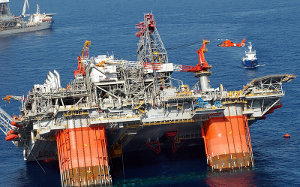 The first offshore drillings were performed in California in 1896. They are designed from pontoons, a technique used later in the 1930s to reach deeper layers in the Gulf of Mexico and Lake Maracaibo in Venezuela. The first real platform was set up off Louisiana in 1933. It extracts oil five meters deep. The first offshore drillings were performed in California in 1896. They are designed from pontoons, a technique used later in the 1930s to reach deeper layers in the Gulf of Mexico and Lake Maracaibo in Venezuela. The first real platform was set up off Louisiana in 1933. It extracts oil five meters deep.
|
n°6 | Rating agencies |
|---|
| N° 87, January 2012 Since the downgrade of the American sovereign rating and the mistaken announcement stipulating that France would be rid of its triple A, rating agencies have come under the limelight. |
n°7 | Motion picture industry and insurance |
|---|
| N° 91, May 2012  More than an entertaining art, the motion-picture industry has nowadays become a thriving business involving substantial funds, more and more astronomic budgets, sometimes reaching hundreds of millions of dollars as was the case of “Titanic”, whose production costs amounted to 273 million USD, without considering the actors’ exorbitant salaries. More than an entertaining art, the motion-picture industry has nowadays become a thriving business involving substantial funds, more and more astronomic budgets, sometimes reaching hundreds of millions of dollars as was the case of “Titanic”, whose production costs amounted to 273 million USD, without considering the actors’ exorbitant salaries.
|
n°8 | Construction insurance and innovation |
|---|
| N° 82, June 2011 Construction has always been present in the race for progress. To stand out in a highly competitive market, materials manufacturers struggle to out-master their rivals’ ingenuity, proposing attractive product offers while architects strive to come up with more and more ambitious achievements.
We should, however, pause to reflect on the limits of the race for innovation which has mobilized huge funds. |
n°9 | E-learning |
|---|
| N° 51, May 2008  The development of information and communication technologies (ICTs) at the end of the 1990s has drastically modified the landscape of vocational training with the birth of a new field of activity, e-learning. The development of information and communication technologies (ICTs) at the end of the 1990s has drastically modified the landscape of vocational training with the birth of a new field of activity, e-learning.
|
n°10 | Marine catastrophes |
|---|
| N° 49, March 2008 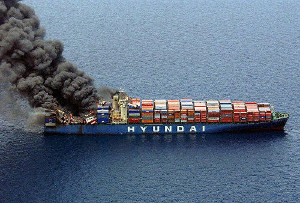 Marine transport-related risks are numerous and often unpredictable. The activity is, by nature, dangerous. Accidents and shipwrecks occur quite frequently with their heavy tolls in victims and material losses. Due to their spectacular aspect, some events did mark collective memory such as the wrecking of the Titanic in 1912, which with its 1513 victims, is regarded as one of the most dramatic accident in the contemporary history of navigation or the oil slicks of recent decades. Marine transport-related risks are numerous and often unpredictable. The activity is, by nature, dangerous. Accidents and shipwrecks occur quite frequently with their heavy tolls in victims and material losses. Due to their spectacular aspect, some events did mark collective memory such as the wrecking of the Titanic in 1912, which with its 1513 victims, is regarded as one of the most dramatic accident in the contemporary history of navigation or the oil slicks of recent decades.
|


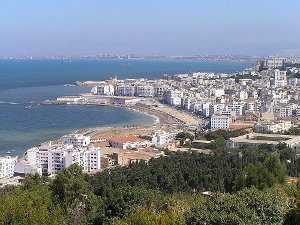
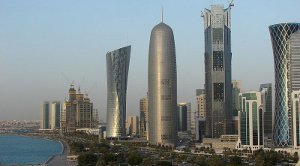
 Natural catastrophes may have major economic and social consequences as they affect human life, cause serious damage to property and disrupt the economic cycle of regions and even entire countries. In order to alleviate their devastating effects, Man has tried to understand mechanisms relying on science and research. Since the 1980s, technical breakthroughs have enabled reinsurance to provide a new approach to address catastrophe risks.
Natural catastrophes may have major economic and social consequences as they affect human life, cause serious damage to property and disrupt the economic cycle of regions and even entire countries. In order to alleviate their devastating effects, Man has tried to understand mechanisms relying on science and research. Since the 1980s, technical breakthroughs have enabled reinsurance to provide a new approach to address catastrophe risks. The first offshore drillings were performed in California in 1896. They are designed from pontoons, a technique used later in the 1930s to reach deeper layers in the Gulf of Mexico and Lake Maracaibo in Venezuela. The first real platform was set up off Louisiana in 1933. It extracts oil five meters deep.
The first offshore drillings were performed in California in 1896. They are designed from pontoons, a technique used later in the 1930s to reach deeper layers in the Gulf of Mexico and Lake Maracaibo in Venezuela. The first real platform was set up off Louisiana in 1933. It extracts oil five meters deep. More than an entertaining art, the motion-picture industry has nowadays become a thriving business involving substantial funds, more and more astronomic budgets, sometimes reaching hundreds of millions of dollars as was the case of “Titanic”, whose production costs amounted to 273 million USD, without considering the actors’ exorbitant salaries.
More than an entertaining art, the motion-picture industry has nowadays become a thriving business involving substantial funds, more and more astronomic budgets, sometimes reaching hundreds of millions of dollars as was the case of “Titanic”, whose production costs amounted to 273 million USD, without considering the actors’ exorbitant salaries.
 The development of information and communication technologies (ICTs) at the end of the 1990s has drastically modified the landscape of vocational training with the birth of a new field of activity, e-learning.
The development of information and communication technologies (ICTs) at the end of the 1990s has drastically modified the landscape of vocational training with the birth of a new field of activity, e-learning. Marine transport-related risks are numerous and often unpredictable. The activity is, by nature, dangerous. Accidents and shipwrecks occur quite frequently with their heavy tolls in victims and material losses. Due to their spectacular aspect, some events did mark collective memory such as the wrecking of the Titanic in 1912, which with its 1513 victims, is regarded as one of the most dramatic accident in the contemporary history of navigation or the oil slicks of recent decades.
Marine transport-related risks are numerous and often unpredictable. The activity is, by nature, dangerous. Accidents and shipwrecks occur quite frequently with their heavy tolls in victims and material losses. Due to their spectacular aspect, some events did mark collective memory such as the wrecking of the Titanic in 1912, which with its 1513 victims, is regarded as one of the most dramatic accident in the contemporary history of navigation or the oil slicks of recent decades.